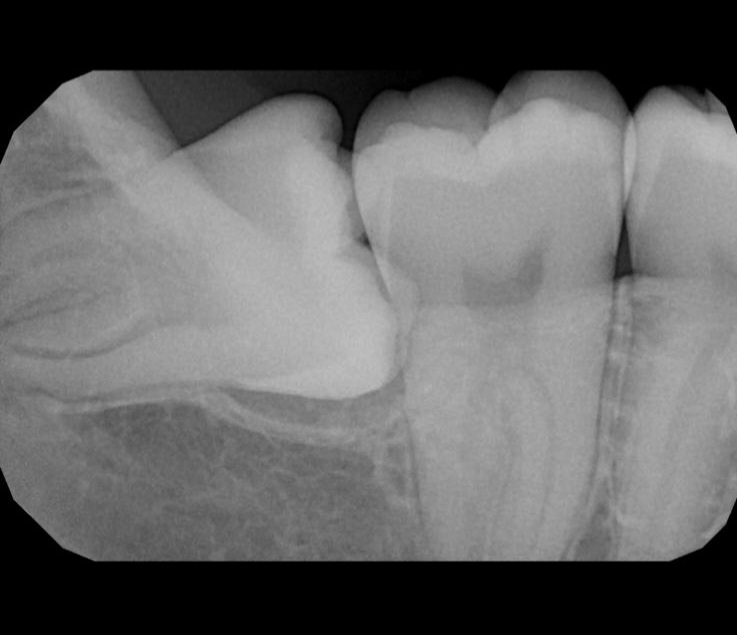Oral Surgery
What is Oral Surgery?
Oral surgery is a branch of dental medicine that deals with the diagnosis and surgical treatment of diseases, injuries, and defects of the mouth, teeth, and jaws. The procedures performed by an oral surgeon are often crucial for preventing further health complications and improving the patient’s quality of life. Our surgeons are trained in various types of operations that can permanently resolve your dental problems.
Oral Surgery Services
Among the most common procedures offered by our clinic are wisdom tooth extraction, surgical treatment of periodontal diseases, dental implant placement, and apicoectomy. Each of these procedures requires specific preparation and postoperative care, and they are performed in sterile conditions to minimize the risk of infection and complications.
Root Extraction
Root extraction is a dental surgical procedure recommended when a tooth is so damaged or infected that it cannot be treated by conventional methods. During this procedure, the tooth is removed from the jaw, helping to alleviate pain and prevent the spread of infection to other teeth and surrounding tissue. Preparation for an oral procedure includes detailed diagnostics and a discussion with the patient about anesthesia and the procedure. After tooth extraction, the patient receives instructions for postoperative care to ensure a quick and painless recovery.
Apicoectomy
An apicoectomy is a surgical procedure used to remove the tip of a tooth root (apicoectomy) that is infected or inflamed. It is usually applied after unsuccessful endodontic treatment (root canal therapy).
Surgical Tooth and Wisdom Tooth Extraction
Tooth extraction is the removal of a tooth from the oral cavity. Reasons for tooth extraction may include decay, periodontal disease, impaction (when a tooth has not grown properly), or the need to measure space before orthodontic treatment.
Wisdom teeth are the last molars in the mouth and can often be impacted or cause discomfort. Wisdom tooth extraction is often necessary to avoid complications such as pain, infections, and bite disorders.
Root Resection
Root resection is a surgical procedure performed to remove the tip of a tooth root along with the surrounding infected tissue. Root resection is most often used when standard root canal treatment (endodontics) is not sufficient to eliminate the infection or inflammation. Root resection may be necessary for teeth with complex root systems or repeated infections. The goal of root resection is to preserve the tooth and prevent the spread of infection to surrounding structures. The procedure involves incision of the gingiva, removal of part of the bone, and treatment of the root tip and surrounding tissue. After the procedure, it is important to follow the dentist’s instructions for proper care and recovery.
Oral Surgery Processes
Preparation for Dental Surgery
Before any surgical procedure, we conduct thorough diagnostics, including X-rays and, if necessary, a CT scan. Patients receive detailed instructions on how to prepare for the surgery, including recommendations about diet and medications that can or cannot be taken before the procedure.
Course of Dental Surgery
Oral surgery procedures usually involve local anesthesia to ensure a painless procedure. The surgeon may use scalpels, drills, and other instruments to perform the necessary operations. After surgery, patients are usually recommended certain therapy for faster recovery, including applying ice, taking medications to control pain and inflammation, and a special diet in the first few days, as well as antibiotic therapy most often.
Recovery and Postoperative Care After Dental Surgery
Care after oral surgery depends on the type and complexity of the procedure, but usually includes wound care, the use of prescribed medications, avoiding hot and very cold foods, and following the instructions of your oral surgeon to ensure a quick and painless recovery.
It is important to consult with an oral surgeon to get a proper diagnosis and treatment plan, as each patient has unique needs and conditions. Regular check-ups are crucial for monitoring recovery progress and promptly addressing any complications.
Benefits of Oral Surgery
Oral surgery offers permanent solutions for many problems that cannot be resolved with conventional dental treatments. In addition to improving chewing and speaking functions, procedures also contribute to the aesthetic appearance of the smile. In the long run, patients experience fewer dental problems and better overall quality of life.
Contact Us for More Information
If you are considering an oral surgery procedure or have any questions, do not hesitate to contact our clinic. Our experts are here to answer all your questions and help you make the best decision for your health and well-being. You can reach us by phone – +385 95 591 8040, email – info@dentelin.eu, or by sending an online inquiry.

Our mission
Our vision is to enable everyone adequate and safe therapy for the patient.
By constantly improving and investing in innovations, we can proudly claim to be one of the pioneers in an individualized approach with a focus on technological solutions for every problem. With constant ideas and innovations, we can confidently say that we will offer even more in the future.
Our values
Access
Our patients, together with their team colleagues, become part of the Dentelin family.
Support
Although technological progress makes work much easier, the human approach is something that is particularly valued and encouraged in our environment.
Availability
We are available to our patients both during and after therapy. A good relationship with a patient does not end at the end of therapy. We are here for you.

